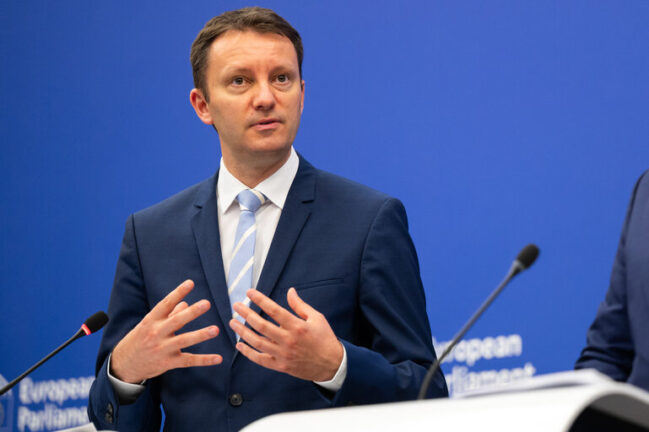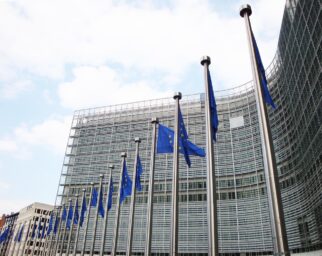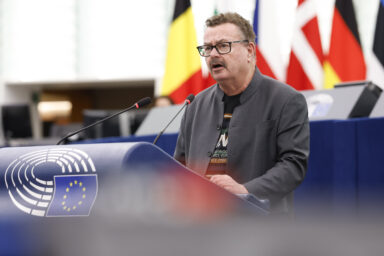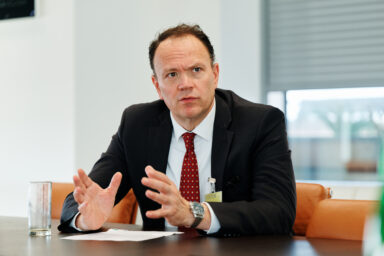In two weeks, the European Commission will unveil the long-awaited proposal for the 2028-2034 EU budget. According to MEP Siegfried Mureşan (EPP/RO), co-rapporteur for the European Parliament’s position on the proposal, the Union must find new sources of revenue. Otherwise, member countries would have to pay extra.
“There are only three options—either member states pay more, we reduce the European budget, or we introduce new own EU resources,” Mr Mureşan says. The reason is clear: repaying the money that European states have jointly borrowed for the post-covid recovery under the EU’s Next Generation Facility, some €25-30bn by 2034, depending on interest rates. It amounts to about fifteen percent of the budget.
“(If we don’t do that, then) either we cut the budget by 15 per cent or the member states pay 15 per cent more without getting anything in return. I cannot imagine that happening,” the MEP added in a briefing with journalists.
Today, three different own resources (a term the EU parlance uses to describe sources of income) fill the European budget. a share of the customs duties collected, a share of the VAT collected, and an amount levied depending on the volume of non-recycled plastic. In addition, the budget comprises monies the member states pay according to their gross national income. The Commission is now to propose new ways of getting more funds into the European budget without increasing the contributions of member states.
You might be interested
“I know it is easier for me as an MEP to talk about supporting own resources than it is for national politicians, finance ministers, who want to make their own decisions (on taxes). But I think there is a momentum now to find a solution,” Mr Mureşan said. After all, it is national governments who will have a major say in the decision.
More priorities, same money
MEP Carla Tavares (S&D/PT), the second rapporteur for the Parliament’s position on the long-term European budget, agrees. “We see that it will be impossible to talk about a new multiannual financial framework without talking about new resources,” she said. She mentioned the new challenges facing Europe, as well as traditional priorities such as cohesion. “It is impossible to do more with less,” she added.
This is the second of the central problems. Even without the need to repay, people expect the European budget to do more. On the other hand, a lack of will to contribute more is clearly present. The Commission itself, when it issued its first communication on the possible shape of the future European budget in February, spoke of a ‘squaring of the circle’.
Traditional priorities of the European budget, such as cohesion or the Common Agricultural Policy remain. In addition, new items requiring funding have joined the list, such as defence, climate action, and related competitiveness support.
“Cohesion and agriculture remain important,” says Mr Mureşan. He points to the role of the regions: It is smaller administrative entities who gets to distribute cohesion funds, which leads to greater efficiency, and the money spent is also “closer to the people”. The bloc, however, cannot afford to ignore new needs arising from the geopolitical situation. Thus the size of the budget will be one of the main topics of the negotiations that starting in July.
No to single national plans
The debate will also deal with the structure of the revenues. According to preliminary media reports, the European Commission could go the way of national plans instead of traditional budget chapters. In practice, each country would have its own designated amount, from which parts would then go to various projects supporting European priorities, similar to the aforementioned Next Generation EU.
MEPs reject this approach. “We say no to national plans, for the pro-European political groups the position is clear,” Ms Tavares says. “The Parliament will reject national plans that put farmers and scientists and regions in competition for the same funds. We are against sending money from Brussels to the national governments and then leaving it to the national government to decide how to use it. We want a European policy based on the same criteria for each member country,” agrees Mr Mureşan.
At the same time, he warns, this is not an official proposal. What the Commission will present remains to be seen on Wednesday 16 July. Negotiations, likely long and complex, will then begin. The multiannual financial framework requires unanimous approval, so each of the 27 member states must agree. This could pose a problem, both in terms of differing views on budgetary responsibility and, for example, because of the furore over the state of the rule of law in Hungary, non-compliance with which has led to a freeze on European funds.











